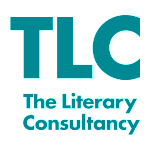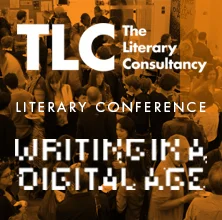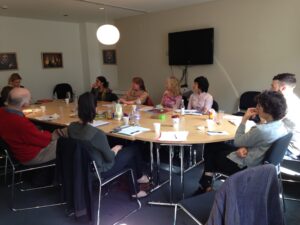“Having a writing mentor is like having a guardian angel on your side,” says Rebecca Swift, co-founder and director of The Literary Consultancy (TLC), a valued Partner Member of ALLi.
Here she describes how self-published authors (and indeed authors of any kind) can benefit from using editorial assessments and mentoring services to make their books the best they can be prior to publication.
At the foot of the post, she also extends a generous discount to ALLi members for TLC's imminent “Writing in the Digital Age” conference, running 13th-15th June at the Free Word Centre in London.
The Literary Consultancy was founded in 1996, we believed that an editorial assessment with market advice would help writers. Believe it or not, nothing like it existed, and so many seemed frustrated and confused about the quality of their work. We hope that professional editorial engagement would, at worst, help writers improve, and in the relatively small percentage of cases where we spotted exceptional talent, we would champion that work to literary agents.
Mentoring in the Modern Age
The world has changed since then, and a broader band of writers can find success thanks to the advent of online, low-cost self-publishing and accessing of beta readers. TLC’s role continues to be to provide professional editorial assessment, and services, although of course we increasingly work to champion writers in to self-publishing environments, alongside traditional ones – and often see writers move between these worlds.
When one of our treasured manuscript assessors, author Sara Maitland, recommended that we consider introducing a mentoring scheme alongside our editorial assessment, I was concerned not to water down the honest, tough feedback we are valued for, nor to introduce a more expensive service. Sara, however, having worked on a similar online scheme internationally for the British Council, persuaded me that some writers really benefited from more in-depth, ongoing engagement.
Chapter and Verse Mentoring Scheme
 With the support of Arts Council England, who continue to enable us to provide free editorial assessment to up to 120 talented, low-income writers nationwide, we launched our now established Chapter and Verse Mentoring scheme. The results have been fantastic, not least because everybody who has engaged with the process has found it to be richly rewarding.
With the support of Arts Council England, who continue to enable us to provide free editorial assessment to up to 120 talented, low-income writers nationwide, we launched our now established Chapter and Verse Mentoring scheme. The results have been fantastic, not least because everybody who has engaged with the process has found it to be richly rewarding.
The main benefit of the scheme seems to be that it is 100% focused on the writer’s particular tendencies and needs, as opposed to group work where writers spend a long time listening to each other, or sharing a tutor’s attention. Also it is accessible from anywhere in the world.
The format is that a writer submits up to 10,000 words every two months and receives feedback to each submission within two weeks. Some phone access to the tutor is also built in.
After this, clients are given up to six months (ideally) to complete a work, and then receive a complete manuscript assessment by a second reader, and are invited to a twice-yearly industry day at the Free Word Centre in London where they spend the day with myself, TLC Manager Aki Schilz and a publisher and agent where we get to know them, listen to their experiences, and get to know their work.
The Benefits of Mentoring
A client with us last week wrote to say:
“Thank you. It was a wonderful day, energising to see the array of talent involved with TLC. I think the consultancy is a wonderful concept and more valuable than any number of creative writing courses I ever attended. It shines through that you care deeply about writing and your contributions on the day were tremendous. I also found the contribution from Chris Wellbelove, literary agent, very helpful.”
Another mentoring client, Rachel Connor, whose novel Sisterwives was published by Crocus Press says:
“The TLC mentoring scheme provided much better value for money than the writing MA I had previously undertaken . . . crucially, too, there was no requirement for ‘jumping through the hoops’ of a university’s critical/analytical component. All the energy was focused on improving my novel, and it really paid off.”
The Best Time for Mentoring
Writers come to us at different stages for mentoring. I think the best stage is when they have written up to around a hundred pages of the manuscript and have the rest of an idea mapped out, or are open as to where their story might lead. This way they are still wholly open to taking the story in directions depending on the mentor’s input.
Learning how to tell a page-turning narrative with the help of a professional writer and/or editor on your side can be invaluable and help save years of mistakes. It is a bit like having a guardian angel on your side, but one who may be pretty challenging!
Others come to us when they have completed a work, and if this is the case they do need to be open about redrafting, otherwise we would recommend a manuscript assessment before they invested in the more expensive mentoring scheme. In some cases, we can tweak the scheme’s format in conversation with your mentor, to try to make sure it works as well as possible for you.
For more about our mentoring scheme, please visit www.literaryconsultancy.co.uk/mentoring/chapter-and-verse/
Special Offer for ALLi Members
TLC is delighted to be associating with ALLi and the Royal Society of Literature at our June Writing in a Digital Age Conference, and we are pleased to offer a 25% discount to ALLi members. To join us, and to enter the delegates' Pen Factor writing competition, sponsored by Kobo Writing Life, please visit: www.literaryconsultancy.co.uk/2014-conference/
To make it easy to share this valuable advice with other indie authors, here's our suggested tweet:
“How & why mentoring helps indie authors write better books – by Rebecca Swift of @tlcuk via @IndieAuthorAlli: https://selfpublishingadvice.org/writing-the-value-of-mentor-services-for-self-published-authors/“








[…] on from Rebecca Swift’s post earlier this year about professional mentoring services for self-published authors, writer and editor Janette Currie […]
Every author needs to work with a mentor at least once in their writing career. It’s wrong economics to say you can’t afford it, you can’t afford not to if you want to write well.
Great article, Rebecca. It’s nice to see you doing such wonderful things for the writing community.